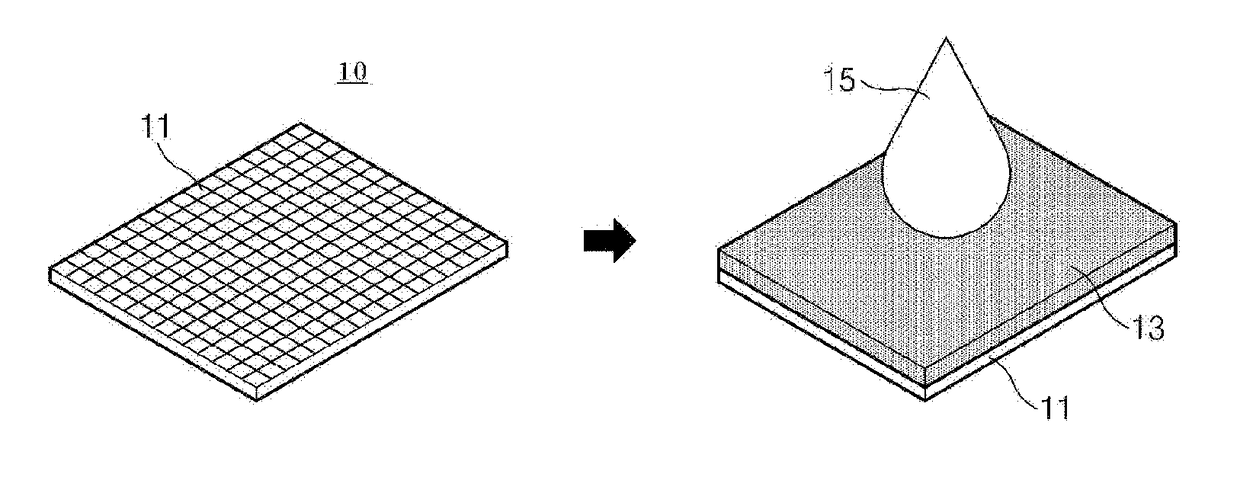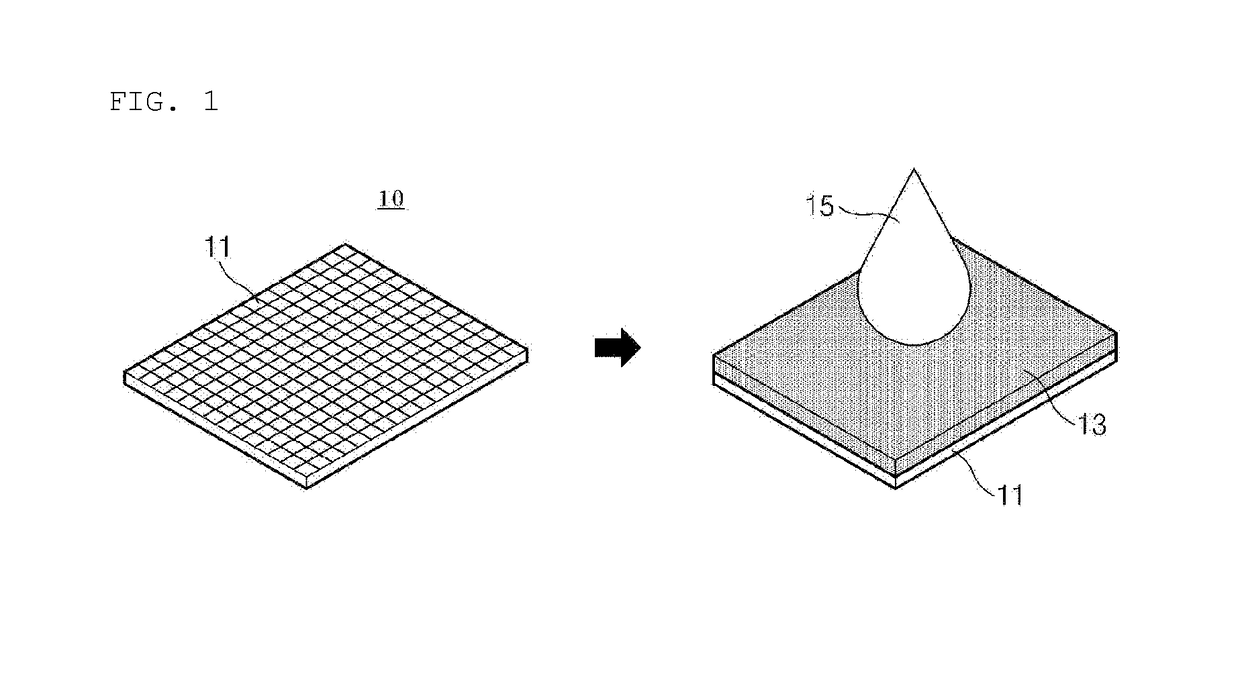Method of preparing lithium secondary battery
a secondary battery and lithium battery technology, applied in the direction of cell components, final product manufacturing, sustainable manufacturing/processing, etc., can solve the problems of reducing the productivity of lithium secondary batteries, poor accuracy, and laborious efforts and costs to assemble bare cells, so as to improve productivity and performance of secondary batteries, reduce processing time and costs, and reduce failure rates
- Summary
- Abstract
- Description
- Claims
- Application Information
AI Technical Summary
Benefits of technology
Problems solved by technology
Method used
Image
Examples
example 1
[0129]Lithium cobalt composite oxide (LiCoO2), carbon black, and PVDF were mixed in a weight ratio of 96:2:2, and N-methyl-2-pyrrolidone was added thereto to prepare a positive electrode active material slurry.
[0130]After the perforated 11 aluminum foil 10 having a thickness of 20 μm and a hole with a diameter of 0.1 mm was coated with the positive electrode active material slurry, the coated foil was dried at 100° C. in a vacuum oven for 12 hours, and a pressure of 50 MPa was then applied at 30° C. to prepare the positive electrode material mixture layer 13 having a thickness of 100 μm, a porosity of 20%, and a density of 3.75 g / cc.
[0131]Subsequently, a non-aqueous electrolyte solution was prepared in which ethylene carbonate (EC) / ethyl methyl carbonate (EMC) / polypropylene (PP) were mixed in a volume ratio of 20 / 20 / 60 (1 M LiPF6), 10 μL of the non-aqueous electrolyte solution 15 was dispensed on a top surface of the positive electrode material mixture layer, and time from the time ...
example 2
[0133]An electrolyte solution impregnation rate was calculated in the same manner as in Example 1 except that a positive electrode material mixture layer having a thickness of 100 μm, a porosity of 20%, and a density of 3.9 g / cc was prepared on a perforated aluminum foil having a hole with a diameter of 0.01 mm, and the results thereof are presented in Table 1 below.
example 3
[0134]An impregnation rate was calculated in the same manner as in Example 1 except that a positive electrode material mixture layer having a thickness of 100 μm, a porosity of 18%, and a density of 4.0 g / cc was prepared on a perforated aluminum foil having a hole with a diameter of 0.1 mm, and the results thereof are presented in Table 1 below.
PUM
| Property | Measurement | Unit |
|---|---|---|
| density | aaaaa | aaaaa |
| thickness | aaaaa | aaaaa |
| hole diameter | aaaaa | aaaaa |
Abstract
Description
Claims
Application Information
 Login to View More
Login to View More - R&D
- Intellectual Property
- Life Sciences
- Materials
- Tech Scout
- Unparalleled Data Quality
- Higher Quality Content
- 60% Fewer Hallucinations
Browse by: Latest US Patents, China's latest patents, Technical Efficacy Thesaurus, Application Domain, Technology Topic, Popular Technical Reports.
© 2025 PatSnap. All rights reserved.Legal|Privacy policy|Modern Slavery Act Transparency Statement|Sitemap|About US| Contact US: help@patsnap.com



